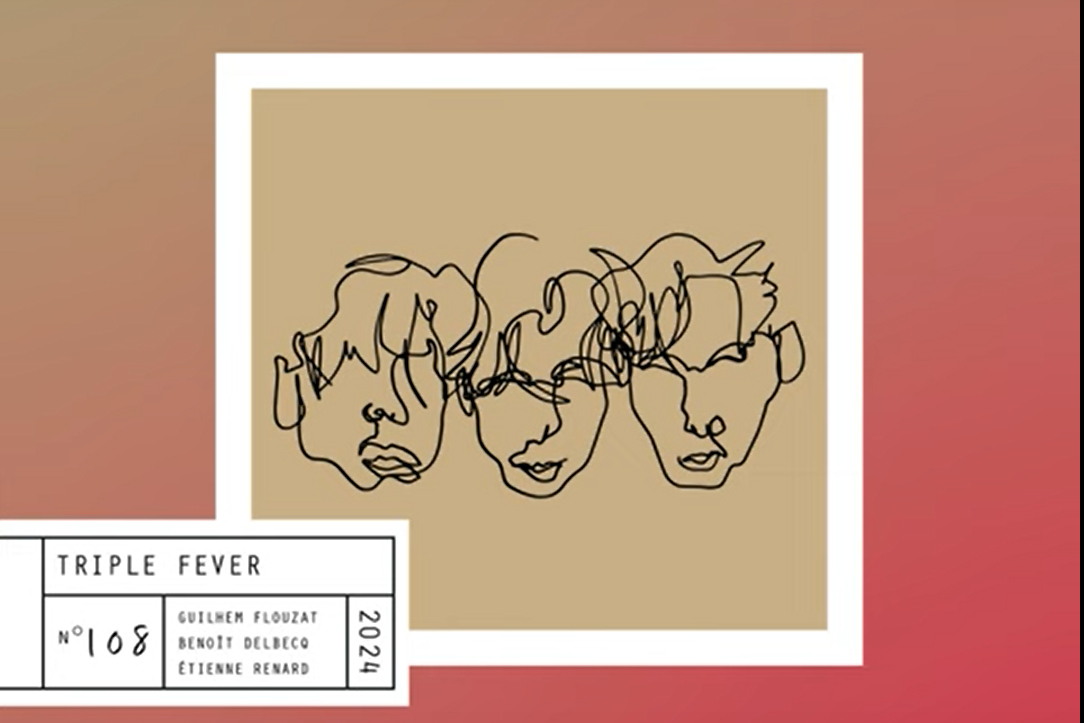Review: Hailu Mergia’s ‘Yene Mircha (የኔ ምርጫ)’
|
Getting your Trinity Audio player ready...
|
In January 2013, Brian Shimkovitz, the head of Awesome Tapes From Africa, found a cassette tape in a shop in Bahir Dar, Ethiopia titled Hailu Mergia & His Classical Instrument. Its combination of the nation’s traditional music with funk and jazz completely blew him away and he undertook a quest to share it with the rest of the world. Subsequent discussions with the then cab driver bandleader in Washington D.C., led to the re-issuance of three albums and the creation of a new recording, Lala Belu (ላላ በሉ). The latter was arguably among the best releases of the past decade. But in some ways, it served for the keyboardist/accordionist/pianist to prove that the brilliance of the past recordings was not a fluke nor that his talent lost its luster in the ensuing years. With the follow-up, Yene Mircha ( የኔ ምርጫ), he produces yet another fine work, one that arguably moves beyond American and Ethiopian styles to transcend multiple cultural lines while still being more personal to the artist.
Upon first encounter, there is seemingly no unifying concept on Yene Mircha ( የኔ ምርጫ). As suggested by the album’s title – Amharic for “my choice” – it centers around Mergia’s thoughts on music at this time. With such a personal impetus, it should be unsurprising that most of the compositions are originals. For someone who has spent his life divided between the United States and Ethiopia, one would anticipate that these pieces significantly pick up on cues from the cultures of both countries and it does effortlessly meld these influences. Unexpected, however, is his ability to incorporate other cultural forms. Thus, to say there is no preset idea unifying the work is a bit of a misconception. Instead, it largely reflects the different influences on the bandleader’s craft. As Mergia himself notes, “You can do anything with Ethiopian music, it shouldn’t be only this sound or that sound. That’s why I called the album My Choice. This is the sound I choose.”
For instance, “Semen Ena Debub ( ሰሜን እና ደቡብ)”, emphasizes the differences in rhythms common to the Northern and Southern parts of Ethiopia. It also showcases the mesenqo, an Ethiopian single-stringed bowed lute. Most musicians who perform on the instrument sound very traditional and would appear out of place in most American and European musical traditions. This is even the case for much of the work of this album’s featured artist, Setegn Atenaw.
Although still somewhat exotic on “Semen Ena Debub (ሰሜን እና ደቡብ)”, the track’s initially subdued funk groove formed by accordion, electric guitar, and synthesizer makes the mesenqo seem like a natural fit. About two-thirds in, as it transitions to the other side of the nation, the song somehow also seemingly draws upon Louisiana Creole musical culture. The tempo increases significantly and it turns oddly reminiscent of contemporary zydeco while continuing to weave the mesenqo even more intricately into the aesthetic.
“Bayine Lay Yihedal (ባይኔ ላይ ይሄዳል)”, similarly draws from a seemingly more ancient Ethiopian music. Asnakech Worku’s original, though eerily beautiful, sounds somewhat confined to its own time and place.
In Mergia’s capable hands, the band transports the song to Jamaica and the Caribbean as it adopts a modern dub and reggae appeal. The change is so radical in fact, the two almost do not seem to be the same piece at all.
Even where cultural exchanges are less apparent, such lie in the subtleties. For instance, on both “Abichu Nega Nega” (አቢቹ ነጋ ነጋ)” and “Shemendefer (ሼመንደፈር)”, the band is joined by Ethiopian vocalist Tsehay Kassa. This is interesting for a few reasons. In his homeland, Mergia is known as a mainstay of instrumental music and the inclusion of vocals would seem oddly placed to some. More significant is a comparison of these to Kassa’s other works. On the former cut, she sounds attuned to funk and the latter to soul. Recordings under her own name, however, sound wholly different.
While Yene Mircha ( የኔ ምርጫ) diverges from its predecessor in many ways, it is in no way inferior. In addition to being highly creative, the compositions are memorable and have a unique way of uniting diverse societies through sound. It is a wonderful reminder that humans beings – regardless of their background or where they are from- are more alike than they are different. It would appear Mergia’s “choice” of using his art to draw people together is a sage one.
Yene Mircha is out March 27, 2020 on Awesome Tapes From Africa.
Track list: 1. Semen Ena Debub; 2. Yene Mircha; 3. Bayine Lay Yihedal ; 4. Abichu Nega Nega; 5. Yene Abeba; 6. Shemendefer; 7. Dibik Fikir [CD Bonus].
Personnel: Hailu Mergia (Keyboards, Accordion, Melodica, Vocals), Kenneth Joseph (Drums), Alemseged Kebede (Bass Guitar), Setegn Atenaw (Mesenqo (1)), Abraham Rezene Habte (Guitar (1)), Moges Habte (Saxophone (2)), Ben Hall (Trombone (2)), Mike Ault (Guitar (2,6)), Tsehay Kassa (Vocals (4,6)).



